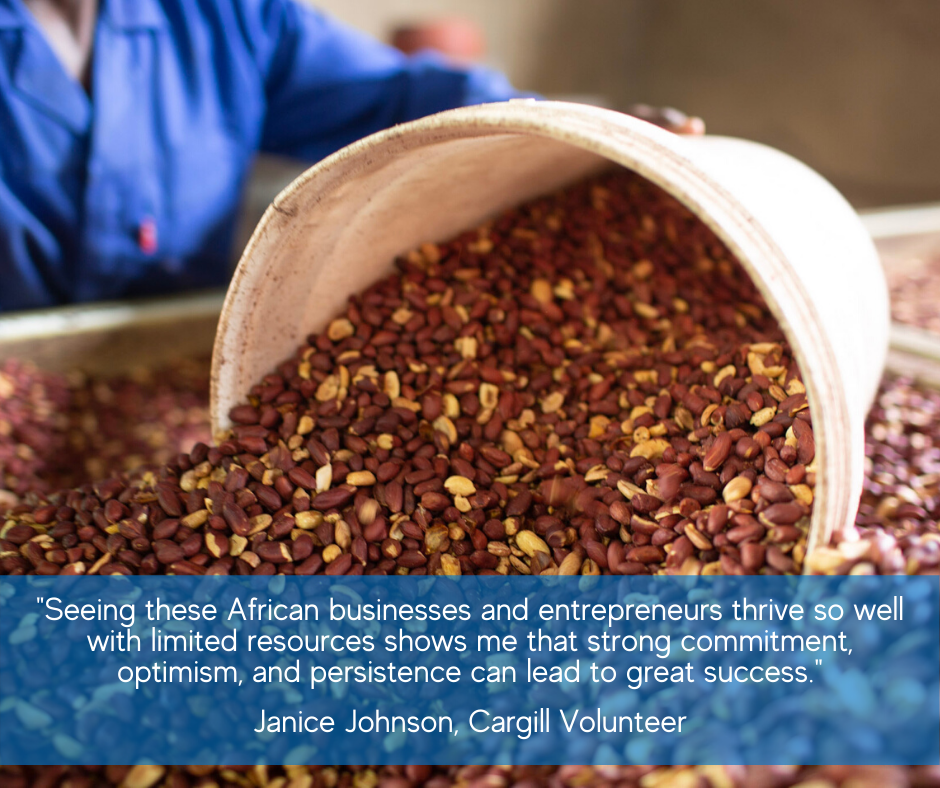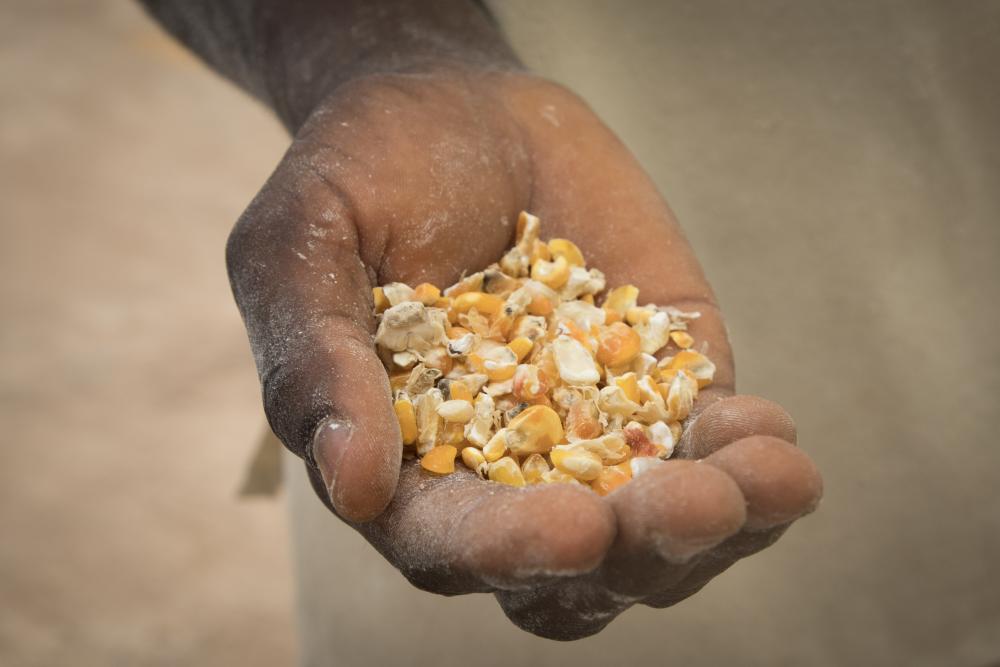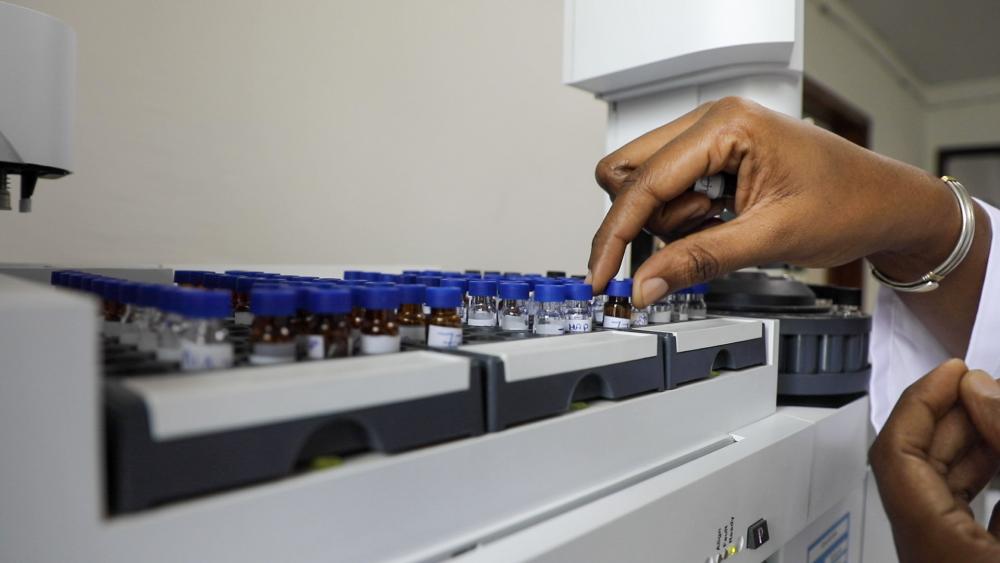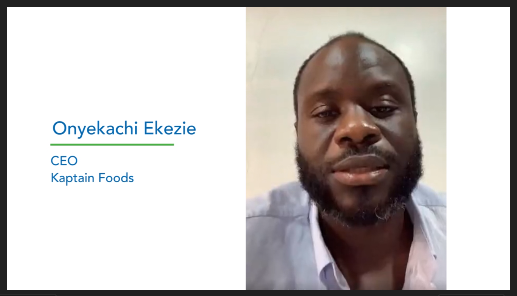
Volunteer Spotlight: Janice Johnson
Janice Johnson is a technical services advisor at Cargill and the Zambia volunteer portfolio lead for PFS. As a portfolio lead, Janice is responsible for reviewing all Zambia project charters for accuracy and feasibility before they become approved projects.
PFS: Please tell us a little about your background.
JJ: I have been working in the food industry for over 20 years in both consumer product goods and ingredient supply segments. I have a passion for science and nutrition, which drives me to study ways to provide healthy food options for the general population.
PFS: Why did you decide to get involved with Partners in Food Solutions?
JJ: I am fortunate enough to be working for a company that is a firm believer in supporting communities through education, making a positive environmental impact, putting people first in terms of health, safety and personal development, and making food accessible, nutritious, and safe for the world. Upon learning about PFS, it was easy to see that we shared a lot of the same values about lifting communities so that everyone has the opportunity to reach their full potential. After speaking with others about their positive experiences volunteering with PFS, it became an easy decision for me to become a volunteer.
PFS: What do you like most about being a portfolio lead for Zambia?
JJ: As the portfolio lead, I get visibility into all of the projects which allows me to learn more about others’ experiences and pick up tips on how to create meaningful solutions. I can also leverage these learnings with other clients to help expedite the decision process for other projects. I learn a lot from the challenges that the clients bring forward and I enjoy being able to share my technical knowledge and perspectives to help ensure they are successful.
PFS: What skills are you developing as a portfolio lead and how do you use those skills in your day job?
JJ: Considering some of the language barriers, time zone differences, and individual perspectives, I have learned to focus on my listening and verbal communication skills to make sure I am understanding others and they understand me. Having a clear grasp of the client’s needs is critical for making sure that I am a worthwhile contributor to their needs. Additionally, working with clients has sharpened my problem-solving skills, especially considering the limited resources available and the creativity required for robust solutions.
PFS: What is one thing you’ve learned after working as a portfolio lead?
JJ: Things that I take for granted are extremely important for PFS clients, such as, the impact of a drought or a flood on the ability to access electricity to run a business, protecting your business from crime, and the ability to get access to equipment and ingredients in a timely manner. Seeing these African businesses and entrepreneurs thrive so well with limited resources shows me that strong commitment, optimism, and persistence can lead to great success.

Serving Others with Honesty, Trust and Integrity
Yu “Chloe” Jiang, who was born and raised in China, has always been interested in food safety, even from an early age. “I remember as a young child learning about food safety scandals that occurred around the globe and being shocked by the people and companies that allowed them to happen,” Chloe said. “Honesty and honor are a couple of my core values and I am proud to work for a company that creates ingredients with integrity and lives out its values of serving people and trust.”
As a manager in the baking lab at Ardent Mills, Chloe is responsible for ensuring raw materials such as flour meets company and food safety standards. Chloe’s unique combination of technical food safety knowledge and ability to speak both Mandarin and English made her the perfect volunteer to help Barri Food Complex, a client that is supported by the partnership between TechnoServe, USAID, and PFS, translate equipment manuals for their grain processing plant in Ethiopia.
“Before Chloe, we were just troubleshooting the equipment. We didn’t have any [equipment] procedures in place,” said Anteneh Tesfaye, managing director of Barri Food Complex. “We could not find someone in our area who was able to translate our equipment manuals who also had a technical background,” Anteneh said, “having Chloe help translate our equipment manuals for us was very useful.” Now that the manuals have been translated to English, Barri Food Complex staff are able to use the equipment well and develop procedures that meet their local food safety standards.
Chloe explained that translating manuals for a grain processing plant in Ethiopia didn’t come without some unique challenges. “The type of maize flour in Ethiopia is very different from its counterpart in North America. I found that the term for cornmeal is not well defined in the US and the difference between corn flour and cornmeal can sometimes be confusing. When Barri Food Complex sent me a sample of their corn flour I noticed that it’s very fine and looks like the refined wheat flour you would find in the US. Through this experience, I learned not to assume anything. Especially when dealing with a food product from a different region and culture.”
For many volunteers, Partners in Food Solutions is an opportunity to learn new things – both professionally and personally. Chloe said, “Joining PFS was an opportunity that allowed me to use my technical knowledge to positively impact food safety and quality around the world. Not only did this experience enrich my knowledge about food, but it also taught me about food application and processing at the manufacturer.”

Building a Lab from the Ground Up
With a grant from the World Food Programme to update their facility, Ghanian maize processor Premium Foods looked to Partners in Food Solutions for assistance with setting up a lab at their facility. Premium Foods decided that in order to stay competitive, building an internal lab would allow them to conduct their own analysis while meeting stringent legislative market requirements and statutory legislation. “An internal lab will provide important food quality results in less time than if we continue to send them to external laboratories,” said Maxwell Bruce, food safety apprentice at Premium Foods. “Therefore, our team can reduce waste by conducting checks in real-time on raw materials, work-in-progress materials, and take corrective actions sooner before the product reaches the final stages.”
To assist Premium Foods in setting up their lab, PFS sought the advice of a volunteer who had lab and grain quality expertise. Curtis Rainey, an assistant quality manager at Ardent Mills, seemed to be just the right fit. “I love the opportunity to help others in the food industry,” said Curtis. “It’s also a fun way to get outside the normal daily grind and learn something new.”
Working on this project with Premium Foods was a bit more involved than the typical projects Curtis works on. “Because I was involved in the development of the analytical lab from the ground up, I got to take part in decisions like which countertops were purchased and discuss what the best testing methods are.” In addition to some of the more detailed parts, Curtis also helped develop procedures for the lab layout, setup, usage, and calibration of different testing procedures.
“Curtis has been a great help to us,” said Maxwell. “He assists in documentation and advises us on what to do to make this project a success. Plus, with Curtis’ help, our staff will know how to conduct laboratory analysis at the end of this project. The expertise we’ve tapped into from the volunteers, such as Curtis, will help us do similar projects on our own in the future and/or enable us to help other businesses in our country.”
.gif)
